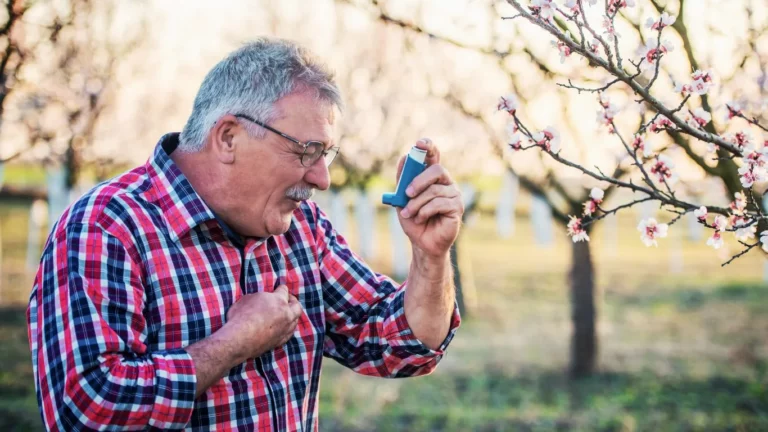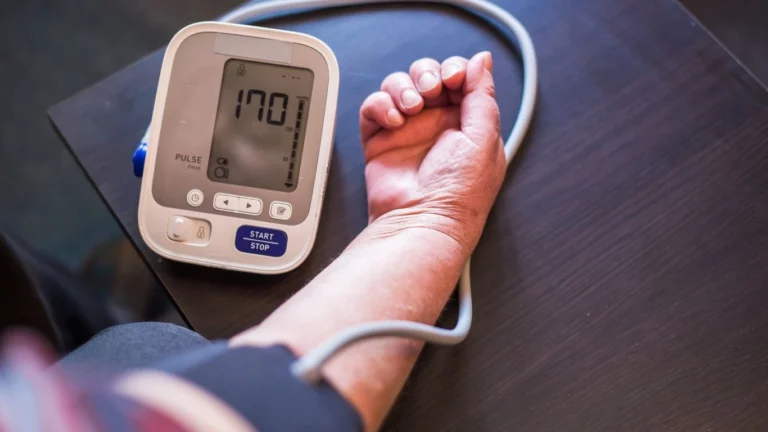Is Soda Water Bad for GERD? The Truth About Its Impact on Digestion
I’ll admit it—on a hot day, there’s nothing I crave more than the crisp fizz of soda water. But if you’re like me and also deal with GERD, that refreshing sparkle often comes with a less-than-refreshing aftermath. The moment that burn creeps up your throat, you’re left wondering: “Is soda water actually triggering my acid reflux?” Let’s dive into the science, the myths, and the surprising truths about this bubbly beverage’s impact on our digestion—and what that means for anyone living with GERD.
How Soda Water Interacts with Digestion and GERD

The Carbonation Problem: Not Just About the Bubbles
Carbonated drinks—whether it’s club soda, sparkling water, or your favorite cola—contain carbon dioxide gas. When you drink them, that gas expands in your stomach. For people with a strong lower esophageal sphincter (LES), it’s usually not a big deal. But for those with GERD, it’s a different story.
That expanded gas builds pressure in the stomach and can push acid back through the LES, leading to that classic burn. That means even the healthiest-looking sparkling water might cause symptoms.
- Increased pressure from gas buildup can weaken the LES.
- Bubbles can lead to frequent belching, which may also bring acid with it.
- Soda water’s acidity—yes, it’s acidic—can irritate the esophagus lining.
In my experience, I used to think switching from cola to flavored sparkling water was a smart move. It felt “healthier”—but my heartburn didn’t get the memo. Turns out, the fizz alone was enough to make my GERD flare up.
pH and Acidity: Surprising Numbers
Soda water may seem innocent, but it has a pH around 3 to 4. That’s more acidic than you might expect—closer to coffee than to plain water. And while not as harsh as soda with caffeine or sugar, it still stimulates acid production in many individuals.
According to the Mayo Clinic, acidic beverages are one of the top dietary triggers for GERD symptoms. That includes sparkling waters—especially those with citrus flavors.
Why Symptoms Often Feel Worse After Drinking Soda

The Role of Added Ingredients
It’s not just the bubbles. Many soda waters—even those marketed as “healthy”—include:
- Artificial sweeteners like aspartame or sucralose
- Natural or synthetic flavorings
- Citric acid, which enhances tartness but worsens acidity
These ingredients can irritate the esophagus or stimulate acid production. For some, they’re just as problematic as regular soft drinks. One night, I grabbed a lime-flavored soda water thinking it was a safe treat—within 20 minutes, I was lying flat with the worst chest burn I’d had in weeks. Lesson learned.
Temperature, Speed, and Timing
Drinking anything carbonated too quickly or with meals can increase gastric pressure. And if it’s ice-cold? That might delay digestion slightly and add another layer of discomfort.
Pro tip: If you’re going to indulge, sip slowly and avoid pairing it with large meals.
Who Should Be Most Cautious with Soda Water?

People with Chronic Reflux or Severe GERD
If you’ve been officially diagnosed with GERD, soda water may not be your friend. It’s especially problematic if:
- You frequently experience regurgitation or “wet burps”
- Your symptoms include throat tightness or chest pressure
- You deal with silent reflux or laryngopharyngeal reflux (LPR)
Those with Esophageal Irritation
Even small amounts of carbonation can sting if you already have inflammation or minor erosions in your esophagus lining.
One reader shared with us that after a mild episode of esophagitis, even a few sips of club soda made her throat feel raw for hours. In her case, flat water was the only safe option until healing was complete.
Learn more about recognizing serious symptoms in this warning signs guide.
People Trying to Heal Through Diet
If you’re working on dietary healing through a GERD-friendly meal plan, soda water may sabotage your progress, even if everything else on your plate is reflux-safe.
Is There Ever a Safe Way to Enjoy Sparkling Water?

Tips for Occasional Enjoyment
You don’t necessarily have to banish all bubbles forever. Some people with mild GERD can handle an occasional sip—if they’re mindful.
Here’s what might help:
- Let it sit for a few minutes to reduce carbonation before sipping
- Avoid citrus flavors or anything with added acid
- Stick to non-flavored, unflavored seltzer
- Never drink it with spicy, fatty, or acidic meals
Personally, I’ve found that flat or semi-flat sparkling water (left open for 30+ minutes) gives me the mouthfeel I enjoy without triggering my GERD. Not glamorous—but functional.
For other drink alternatives, you might explore options like coconut water, ginger tea, or even fruit-infused low-acid water as refreshing alternatives.
Comparing Soda Water with Other Fizzy Culprits

Not All Bubbles Are Created Equal
Soda water isn’t the only bubbly beverage out there, and not all carbonated drinks hit your system the same way. Over the years, I’ve played beverage roulette with everything from tonic water to ginger ale. Some were disasters. Others? Surprisingly tolerable.
Here’s a quick breakdown:
- Club Soda: Contains added minerals like sodium bicarbonate or potassium sulfate, which may contribute to bloating and mild discomfort.
- Tonic Water: Sweetened and often flavored with quinine—definitely not GERD-friendly due to both sugar and acidity.
- Seltzer: Usually the “cleanest” option—just carbonated water with no extras—but still has the carbonation risk.
- Soft Drinks: The worst offenders. Sugary, acidic, carbonated, and often caffeinated. It’s like a full-frontal assault on your esophagus.
If you’ve ever felt like your reflux is worse after not drinking enough water, it’s probably true—your gut works harder when dehydrated. But grabbing a cold soda isn’t the solution.
Caffeine and Artificial Sweeteners Add Fuel to the Fire
Caffeine is a known GERD trigger. Pair that with phosphoric acid and artificial sweeteners (especially in diet sodas), and you’ve got a digestive cocktail waiting to explode.
According to a detailed review published in the *Journal of Gastroenterology and Hepatology*, caffeine and artificial sweeteners like aspartame can relax the LES and increase acid secretion.
What Science Really Says About Soda Water and Acid Reflux

Clinical Observations and Research Insights
While not every study targets soda water specifically, multiple peer-reviewed analyses have lumped it in with carbonated drinks and found strong associations with worsened GERD symptoms.
One 2012 study published in Neurogastroenterology & Motility found that carbonated beverages led to increased post-meal acid exposure in the esophagus, even among healthy volunteers. Now imagine the effect on someone with an already weak LES.
The Missing Research on “Healthy” Sparkling Waters
Brands often market unflavored sparkling waters as healthy, but we don’t have long-term data showing they’re safe for GERD. What we do have is plenty of anecdotal experience—and if the reflux forums and support groups I’m in are anything to go by, the verdict is mixed at best.
If you’re one of those people who feels okay after a few sips but terrible after finishing a can, you’re not imagining it. The cumulative gas can build silently, causing delayed discomfort or a full-on nighttime GERD episode.
That’s why a lot of folks turn to natural alternatives like aloe vera or essential oils under professional guidance. They don’t carry the carbonation risk and may actually soothe inflammation.
How to Read Labels and Choose Wisely

Ingredients That Spell Trouble
Even among “plain” sparkling waters, the label can reveal hidden triggers. These are the common red flags I personally look out for now:
- Citric acid: Often added for tartness but highly irritating to the esophagus
- Natural flavors: Vague and inconsistent—can include citrus oils, caffeine, or acidic compounds
- Phosphoric acid: Found in colas and many “zero calorie” sodas—bad for bones and reflux
- Sodium benzoate or potassium benzoate: Preservatives that can irritate the GI lining
My advice? If you can’t pronounce half the ingredients, your stomach probably won’t love it either.
Carbonation Level: Yes, It Varies
Did you know not all sparkling waters have the same level of bubbles? Some brands are aggressively fizzy, while others are more mildly effervescent.
One trick I use is to compare brands—LaCroix tends to feel harsher on my throat than something like Perrier. Your mileage may vary, but if you’re still experimenting, start with low-carbonation options and work up slowly.
GERD-Friendly Alternatives to Replace Soda Water

Better Beverages for Sensitive Digestion
You don’t have to sacrifice all refreshment if you’re cutting soda water. Here’s what I personally rotate in:
- Room temperature still water – gentle and soothing
- Chamomile tea – naturally calming for both gut and nerves
- Coconut water – hydrating and slightly alkaline
- Ginger tea – promotes digestion and reduces inflammation
If I’m craving that fizzy texture, I’ll infuse cold water with cucumber or melon for a refreshing twist. Sometimes it’s not the bubbles—it’s just the idea of a “fancy drink” that satisfies the craving.
Want to learn more about how food and drinks influence GERD recovery? I strongly recommend starting with the GERD Diet Plan—it’s a foundational guide that’s helped me and thousands of others make sustainable changes without losing our minds over every bite or sip.
How I Rebalanced My Digestive Habits Without Losing the Things I Enjoy

When I finally got tired of chasing quick fixes and started listening to my body, things began to shift. I used to rely on soda water as my “healthy replacement” for soda—but in hindsight, it wasn’t doing me any favors. Every time I drank it, I’d end up dealing with bloating, tight chest pressure, or that low-grade burn that ruined my night’s sleep.
So instead of going cold turkey on everything fun, I made a few conscious swaps and strategies that worked:
- Only having bubbly drinks when I’m upright, not reclining afterward
- Leaving cans open to flatten before sipping
- Switching to herbal teas like chamomile and ginger
- Adding crushed ice and mint to still water for a “refreshing” vibe
It didn’t feel like deprivation. In fact, it felt like relief.
Expert-Backed Ways to Manage GERD Without Sacrificing Enjoyment

Small Changes, Big Results
According to the Cleveland Clinic, lifestyle changes often outperform medication in managing GERD long-term. That includes tweaking diet, timing meals, adjusting posture, and yes—rethinking what you drink.
Here’s what most experts recommend when it comes to beverage choices:
- Stick to still, room temperature water between meals
- Avoid carbonated or citrusy drinks within 2-3 hours of bedtime
- Experiment with herbal teas that reduce inflammation and relax the gut
- Keep a food & drink journal to track personal triggers
If you’ve been relying on antacids after every fizzy drink, that’s a red flag. The goal isn’t to “treat the burn”—it’s to stop causing it in the first place.
Silent Reflux? You Might Not Feel the Burn—But It’s Still There
Even without heartburn, soda water can silently aggravate reflux. For those dealing with silent reflux or laryngopharyngeal reflux (LPR), the signs show up differently: chronic cough, throat clearing, hoarseness, even dental erosion.
If that sounds familiar, you may want to read this deeper guide on silent reflux solutions. I didn’t realize for months that my hoarseness and tight throat were tied to what I drank—not what I ate.
Safe Drink Options That Still Feel “Fun”

My Go-To Favorites
Let’s be real: plain water all day gets boring. But there are plenty of creative GERD-safe drinks I’ve grown to love—some of which feel downright indulgent.
Here are a few:
- Coconut-cucumber mocktail: Lightly chilled coconut water with cucumber slices and crushed mint
- Apple-ginger infusion: Let apple slices and fresh ginger steep in cool filtered water for a few hours
- Licorice root tea: Naturally sweet and calming on the gut lining
- Melon water: Blend honeydew or cantaloupe with water and strain—chill for a hydrating treat
These are the types of things that helped me *look forward* to hydration, instead of treating water like a chore.
If you’re looking for more snack and drink inspiration, this curated collection of GERD-friendly snacks and beverages is worth exploring.
Bottom Line: Is Soda Water Bad for GERD?

For many of us with GERD, soda water just isn’t worth the risk. It may seem harmless, but the bubbles, acidity, and additives stack up quickly—and your esophagus pays the price.
If you’re lucky, you might tolerate it in small amounts, especially when flattened or consumed far from meals. But if you’re serious about managing GERD symptoms without medication or invasive procedures, it’s worth ditching the fizz—or at least minimizing it.
And hey, it’s not about giving things up. It’s about finding better choices that actually support your digestion and don’t leave you popping antacids after every drink.
For a deeper look into holistic approaches and everything from diet to triggers to long-term management, check out this essential overview: Natural Remedies for GERD That Actually Work.

Camellia Wulansari is a dedicated Medical Assistant at a local clinic and a passionate health writer at Healthusias.com. With years of hands-on experience in patient care and a deep interest in preventive medicine, she bridges the gap between clinical knowledge and accessible health information. Camellia specializes in writing about digestive health, chronic conditions like GERD and hypertension, respiratory issues, and autoimmune diseases, aiming to empower readers with practical, easy-to-understand insights. When she’s not assisting patients or writing, you’ll find her enjoying quiet mornings with coffee and a medical journal in hand—or jamming to her favorite metal band, Lamb of God.







